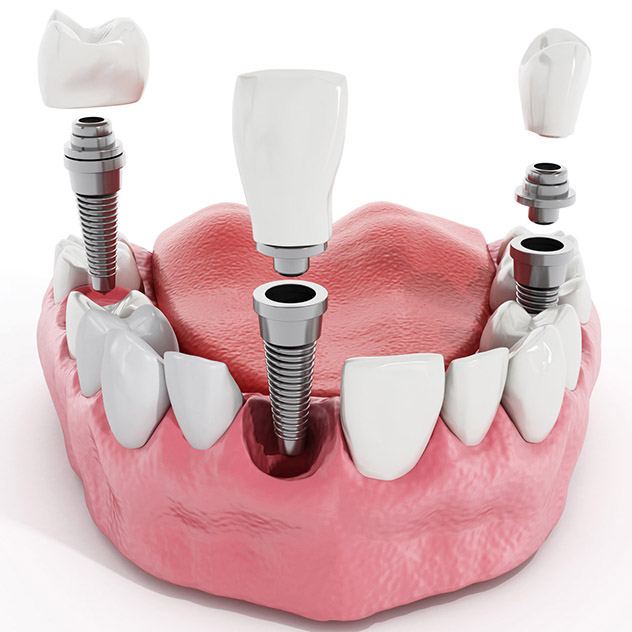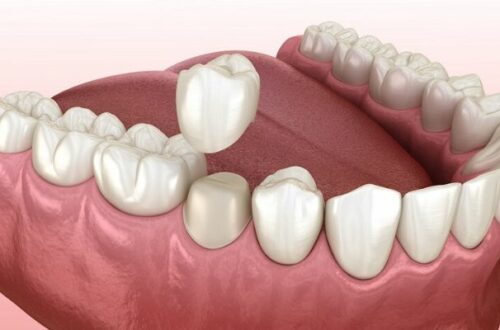
The Signs You Need a Dental Prosthesis: A Comprehensive Guide
Are you experiencing discomfort or self-consciousness due to missing teeth or other dental issues? It may be time to consider a dental prosthesis. A dental prosthesis is a custom-made device designed to replace missing teeth and restore your smile. But how do you know if you need one? In this comprehensive guide, we’ll explore the signs that indicate you may benefit from a dental prosthesis. We’ll cover everything you need to know to make an informed decision about your dental health. From tooth loss to gum disease, read on to discover the signs that it’s time to consider a dental prosthesis.
Do you dream of a new, beautiful smile? A perfect solution will be the reconstruction of teeth with the use of the Poznan prosthesis service. Qualified specialists from the Stankowscy-Białach dental clinic will do it for you!
What is a dental prosthesis?
A dental prosthesis, also known as a dental appliance, is a custom-made device designed to replace missing teeth or support other dental structures. Dental prostheses are made from various materials, including acrylic resin, porcelain, and metal alloys. They can be removable or fixed, depending on the patient’s needs.
Dental prostheses can be used to replace one or more missing teeth, support existing teeth, or correct bite issues. They can also improve speech, chewing, and overall dental health. Dental prostheses are typically prescribed by a dentist or prosthodontist, who will evaluate the patient’s dental health and recommend the appropriate device.
Signs that indicate the need for a dental prosthesis
There are several signs that may indicate the need for a dental prosthesis. One of the most obvious signs is missing teeth. If you have lost one or more teeth due to injury, decay, or other dental issues, you may benefit from a dental prosthesis. Missing teeth can cause a variety of problems, including difficulty chewing, speaking, and smiling.
Another sign that may indicate the need for a dental prosthesis is gum disease. Gum disease is a common dental issue that can cause the gums to recede and the teeth to become loose or fall out. In some cases, gum disease can be treated with antibiotics or other medications. However, if the damage to the teeth or gums is severe, a dental prosthesis may be necessary to restore dental health.
Other signs that may indicate the need for a dental prosthesis include cracked or broken teeth, bite issues, and dental pain. If you are experiencing any of these symptoms, it’s important to consult with a dentist or prosthodontist to determine the best course of treatment.
Types of dental prostheses
There are several types of dental prostheses, each designed to address specific dental issues. The most common types of dental prostheses include:
- Dentures: Dentures are removable dental appliances that replace missing teeth. They are typically made from acrylic resin and can be full or partial, depending on the patient’s needs.
- Bridges: Bridges are fixed dental appliances that replace one or more missing teeth. They are typically made from porcelain or ceramic and are attached to the existing teeth using dental cement.
- Implants: Implants are a type of dental prosthesis that replaces missing teeth using a surgical procedure. An implant is a metal post that is inserted into the jawbone, where it fuses with the bone to create a stable foundation for a replacement tooth.
- Crowns: Crowns are dental prostheses that cover damaged or cracked teeth. They are typically made from porcelain or ceramic and are attached to the existing tooth using dental cement.
Each type of dental prosthesis has its own advantages and disadvantages, and the best option for each patient will depend on their specific dental needs.
The benefits of getting a dental prosthesis
There are many benefits to getting a dental prosthesis. One of the most obvious benefits is improved dental health. Dental prostheses can help to prevent further dental issues by replacing missing teeth, supporting existing teeth, and correcting bite issues.
In addition to improving dental health, dental prostheses can also improve overall quality of life. They can improve speech, chewing, and smiling, which can boost self-confidence and improve social interactions. Dental prostheses can also help to prevent bone loss in the jaw, which can occur when teeth are missing for an extended period of time.
Factors to consider before getting a dental prosthesis
Before getting a dental prosthesis, there are several factors to consider. One of the most important factors is the cost. Dental prostheses can be expensive, and not all insurance plans cover them. It’s important to discuss the cost with your dentist or prosthodontist and explore financing options if necessary.
Another factor to consider is the maintenance and care of the dental prosthesis. Some types of dental prostheses require more maintenance than others, and it’s important to understand the care instructions before committing to a specific device.
Finally, it’s important to choose a qualified and experienced dentist or prosthodontist to perform the procedure. A skilled professional will be able to evaluate your dental health and recommend the best option for your specific needs.
The process of getting a dental prosthesis
The process of getting a dental prosthesis will depend on the type of device and the patient’s specific needs. In general, the process will involve several appointments with a dentist or prosthodontist.
During the first appointment, the dentist or prosthodontist will evaluate the patient’s dental health and recommend the best type of dental prosthesis. They may take x-rays or impressions of the teeth and gums to ensure an accurate fit.
Once the type of dental prosthesis has been determined, the dentist or prosthodontist will create a custom device that fits the patient’s mouth. This may involve creating a mold of the teeth and gums and using it to create a wax model of the device. The wax model will then be used to create the final dental prosthesis.
Once the dental prosthesis has been created, the patient will return for a final fitting. The dentist or prosthodontist will ensure that the device fits comfortably and make any necessary adjustments.
Aftercare and maintenance of dental prostheses
After getting a dental prosthesis, it’s important to follow the care instructions provided by the dentist or prosthodontist. This may involve regular cleanings and checkups, as well as proper maintenance of the device.
For removable dental prostheses such as dentures, it’s important to clean them daily using a soft-bristled brush and denture cleaner. It’s also important to remove them at night to allow the gums to rest.
For fixed dental prostheses such as bridges or implants, it’s important to practice good oral hygiene and visit the dentist regularly for cleanings and checkups. The dentist may also recommend using a water flosser or interdental brush to clean around the device.
Common myths about dental prostheses
There are many myths and misconceptions about dental prostheses. One of the most common myths is that they are uncomfortable or difficult to wear. While it may take some time to adjust to a new dental prosthesis, most patients find them to be comfortable and easy to wear.
Another myth is that dental prostheses are only for older adults. In fact, dental prostheses can be used by people of all ages to address a variety of dental issues.
Finally, some people believe that dental prostheses are not as effective as natural teeth. While dental prostheses may not be able to replicate the exact function of natural teeth, they can improve dental health and overall quality of life.
Conclusion
If you are experiencing dental issues such as missing teeth, gum disease, or bite issues, it may be time to consider a dental prosthesis. Dental prostheses can improve dental health, speech, chewing, and overall quality of life. However, it’s important to consider the cost, maintenance, and care before committing to a specific device. By working with a qualified and experienced dentist or prosthodontist, you can find the best option for your specific dental needs.
Do you dream of a new, beautiful smile? A perfect solution will be the reconstruction of teeth with the use of the Poznan prosthesis service. Qualified specialists from the Stankowscy-Białach dental clinic will do it for you!



